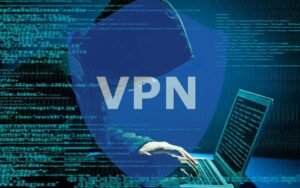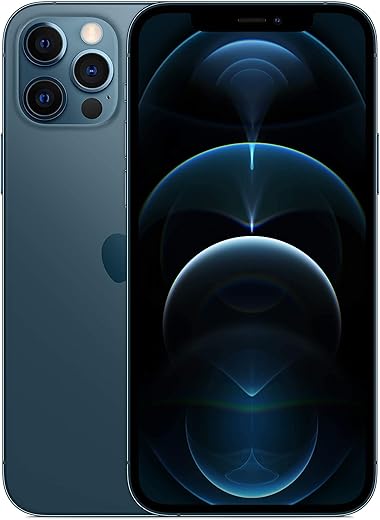Virtual Private Network Best VPNs 2024

A virtual private network (VPN) is a network connection that provides a speed security why we picked tunnel between your device and a Best VPN 2024 server, encrypting all traffic passing between them. This makes it impossible for anyone else on the network to see or intercept your data, even if they are connected to the same public Wi-Fi hotspot as you.
VPNs are often used by businesses to allow employees to securely access the company network from home or remote locations. However, they can also be used by individuals to protect their privacy and security online.
A VPN creates a secure and encrypted connection between your device and a VPN servers number of server locations. This ensures that your data is protected and cannot be accessed by others on the same network. VPNs are commonly used by businesses and individuals to enhance privacy and security while browsing the internet. By using a VPN, you can securely access company networks or protect your personal information from potential threats pricing pros cons.
How does a VPN work?
When you connect to a VPN, your device creates a secure tunnel to the VPN server. All traffic passing between your device and the Best VPN 2023 server is encrypted, meaning that it is scrambled and unreadable to anyone else monthly fee number of servers.
Once your traffic reaches the VPN server, it is decrypted and sent on to its destination. The VPN server also assigns you a new IP address, which is the IP address of the VPN server. This means that your device will appear to be coming from the VPN server’s location, not your actual location.
When you use a VPN, your device establishes a secure connection with a VPN server. All data transmitted between your device and the server is encrypted, ensuring its confidentiality. Once the data reaches the VPN server, it is decrypted and forwarded to its intended destination. Additionally, the VPN server assigns your device a new IP address, making it appear as if you are accessing the internet from the server’s location rather than your own.
Why should I use a Bset VPN 2024?
1. Secure Your Online Privacy:

- Protect your data from prying eyes: A VPN encrypts your internet traffic, making it unreadable to anyone who might try to intercept it, including your internet service provider (ISP), government agencies, or hackers. data tunnel created by VPN
2. Safeguard Your Online Activities on Public Wi-Fi:

- Prevent data theft and snooping: When you use public Wi-Fi, your data is vulnerable to hackers and other cybercriminals. A VPN protects your data by encrypting it and routing it through a secure server.
3. Access Geo-Restricted Content:
- Bypass censorship and regional blocks: A VPN allows you to connect to servers in different countries, enabling you to access websites, streaming services, and other content that might be blocked in your location.Person using VPN to access georestricted content from another country
4. Prevent ISP Throttling:

- Enjoy fast and reliable speeds: Some ISPs throttle (slow down) your internet connection when you engage in certain activities, such as streaming or torrenting. A VPN can help you avoid throttling by encrypting your traffic and making it harder for your ISP to see what you’re doing online.ISP throttling internet speed, but a VPN bypassing the throttling
5. Safeguard Your Online Shopping and Banking:

- Protect your financial information: When you shop or bank online, your sensitive information is at risk. A VPN can help protect your data by encrypting it and making it more difficult for hackers to steal.Person using VPN to securely shop and bank online
6. Enhance Your Online Gaming Experience:

- Reduce lag and improve performance: A VPN can help reduce lag and improve your gaming experience by routing your traffic through a faster server.Gamer using VPN to reduce lag and improve gaming experience
7. Protect Your Identity and Location:

- Shield your personal information: A VPN can help mask your IP address, making it more difficult for websites and trackers to identify you and your location. zorrovpn Person using VPN to mask their IP address and protect their identity
8. Maintain Online Anonymity:

- Browse the web without leaving a trace: A VPN can help you maintain your online anonymity by preventing your browsing history from being tracked. (avast) Person browsing the web anonymously with a VPN
tunesharemore_vertadd_photo_alternate
What are the different types of VPNs?

There are two main types of VPNs: remote access VPNs and site-to-site VPNs.
- Remote access VPNs: Remote access VPNs allow users to connect to a private network from a remote location, such as home or a hotel. Remote access VPNs are often used by businesses to allow employees to securely access the company network from home or other remote locations.
- Site-to-site VPNs: Site-to-site VPNs connect two private networks together over the public internet. Site-to-site VPNs are often used by businesses to connect their offices together, or to connect their on-premises network to a cloud-based network.
privacy speed security why
Choosing a VPN can be overwhelming, with various providers offering a dizzying array of features. But when it comes down to it, the core reasons to use a VPN boil down to three key pillars: privacy, speed, and security.
Privacy:

Imagine your online activity as a clear glass box, visible to anyone who cares to peek. A VPN acts like a thick curtain, shielding your online traffic from prying eyes, including:
- Your internet service provider (ISP): They can see your browsing history, download activity, and even sell your data to advertisers.
- Government agencies: In some countries, governments can monitor internet traffic and even censor content.
- Hackers: Public Wi-Fi networks are notorious for being unsecured, making your data vulnerable to interception by hackers.
With a VPN, your data is encrypted, transforming it into a jumbled mess that only the intended recipient can decipher. This adds a layer of anonymity to your online activities, making it much harder for anyone to track your movements or steal your information.
Speed:

The internet is a vast highway, and sometimes your data can get stuck in traffic jams, leading to slow speeds and frustrating buffering. A VPN can act like a fast-lane pass, helping you bypass these bottlenecks and enjoy a smoother, more enjoyable online experience.
Here’s how a VPN can boost your speed:
- Reduces ISP throttling: Some ISPs deliberately slow down your internet connection for certain activities like streaming or torrenting. A VPN encrypts your traffic, making it harder for your ISP to throttle your speed.
- Connects you to faster servers: VPNs have a network of servers located around the world. If your local server is congested, the VPN can automatically route your traffic to a faster server in another location.
- Bypasses geo-restrictions: Certain content providers may restrict access based on your location. A VPN can help you bypass these restrictions by connecting you to a server in a country where the content is available.
Security:
The internet is a jungle, and just like in any jungle, there are lurking dangers. A VPN acts like a security blanket, protecting you from these online threats:
- Malware and phishing attacks: Hackers often use malicious websites and emails to steal your personal information or infect your devices with malware. A VPN can help block these attacks by filtering your traffic and preventing you from accessing dangerous websites.
- Data breaches: Companies that store your data are often targeted by hackers. A VPN encrypts your data, making it much harder for hackers to steal even if they gain access to the company’s servers.
- Wi-Fi snooping: Public Wi-Fi networks are a breeding ground for cybercriminals who can snoop on your traffic and steal your data. A VPN encrypts your data, making it unreadable to anyone trying to snoop on your connection.
In conclusion, while there’s no one-size-fits-all answer to the “why use a VPN” question, the benefits of privacy, speed, and security make them a valuable tool for anyone who wants to take control of their online experience and protect themselves from the lurking dangers of the internet.
Remember, choosing the right VPN depends on your individual needs and priorities. Consider factors like budget, features, server locations, and compatibility before making your decision. And always prioritize reputable providers with strong security practices and a proven track record.
How to choose a Best VPN 2024
Step 1: Understand Your Needs
Before you start diving into the sea of VPN options, take a moment to consider what you actually need from a VPN. Here are some key questions to ask yourself:
- What do you want to use a VPN for? Streaming geo-restricted content? Protecting your privacy when using public Wi-Fi? Bypassing censorship? Different uses will have different priorities.
- How important is speed to you? If you’re a regular streamer or torrenter, you’ll need a VPN with fast speeds and unlimited bandwidth.
- What kind of device do you need to use the VPN on? Make sure the VPN you choose has a compatible app for your device (PC, Mac, smartphone, etc.).
- What’s your budget? VPNs can range in price from a few dollars per month to tens of dollars per month.
Once you have a better understanding of your needs, you can start to narrow down your options.
Step 2: Research Your Options
Now that you know what you’re looking for, it’s time to start researching different VPN providers. Here are a few things to keep in mind:
- Read reviews: There are many websites that review VPNs. Be sure to read reviews from a variety of sources to get a well-rounded picture.
- Compare features: Not all VPNs are created equal. Some features to look for include strong encryption, a no-logs policy, a kill switch, and DNS leak protection.
- Check server locations: If you want to bypass censorship or access geo-restricted content, you’ll need a VPN with servers in the right locations.
Step 3: Sign Up for a Trial
Most VPN providers offer free trials, so you can try before you buy. This is a great way to test out the service and make sure it meets your needs.
Step 4: Get Connected
Once you’ve chosen a VPN and signed up for a trial, it’s time to get connected. The setup process is usually fairly simple, but be sure to follow the provider’s instructions carefully.
Once you’re connected, you can start enjoying the benefits of using a VPN!
How to use a Best VPN 2024
To use a VPN, you will need to download and install a VPN client on your device. Once you have installed the VPN client, you will need to create an account with a Best VPN providers.
Once you have created an account, you can log in to the best cheap VPN client and connect to a VPN server. The VPN client will encrypt your traffic and route it through the VPN server.
Once you are connected to a Best VPN services, you can browse the internet as usual. Your traffic will be encrypted and your real IP address will be hidden.
When considering a VPN, there are several factors to keep in mind. These include the level of security and encryption offered, the number and location of servers available, the speed and performance of the VPN, and the compatibility with different devices and operating systems.
To use a VPN, you will need to follow a few simple steps. First, download and install the VPN client on your device. Next, create an account with a reputable VPN provider. Once your account is set up, log in to the VPN client and choose a server to connect to. The VPN client will establish a secure connection, encrypting your internet traffic and hiding your real IP address.
With the VPN connected, you can browse the internet with confidence, knowing that your data is protected. Whether you’re accessing sensitive information, streaming content, or simply looking to enhance your privacy online, a VPN can be a valuable tool.
What is the best VPN overall in 2024?
ExpressVPN: Excellent speed, security, and streaming capability. Winner of CNET’s Editors’ Choice.
Surfshark: Budget-friendly with unlimited connections and strong security. Ideal for multi-device use.
NordVPN: Robust security features and a large server network. Good for privacy-conscious users.
What features should I look for in a VPN?
No-logs policy: Ensures your activity isn’t recorded.
Kill switch: Disconnects your internet if the VPN connection drops.
DNS leak protection: Prevents leaks revealing your true location.
Fast speeds: Important for streaming and downloading.
Wide server network: Allows access to geo-restricted content.
Multiple device connections: Useful for protecting all your devices.
How much does a good VPN cost?
Conclusion
VPNs are a powerful tool that can help you to protect your privacy and security online. If you are looking for a way to stay safe online, you should consider using a VPN.
Additional benefits of using a VPN
- Access to geo-restricted content: VPNs can be used to access geo-restricted content, such as streaming services, websites, and apps that are only available in certain countries. For example, you could use a VPN to watch Netflix US from another country.
- Protection from public Wi-Fi networks: Public Wi-Fi networks are often unsecured, making it easy for hackers to steal your data. A VPN encrypts your traffic, making it impossible for hackers to steal your data even if you are connected to a public Wi-Fi network.
- Improved performance: VPNs can sometimes improve your internet performance by routing your traffic through








Can you be more specific about the content of your article? After reading it, I still have some doubts. Hope you can help me.
thank you